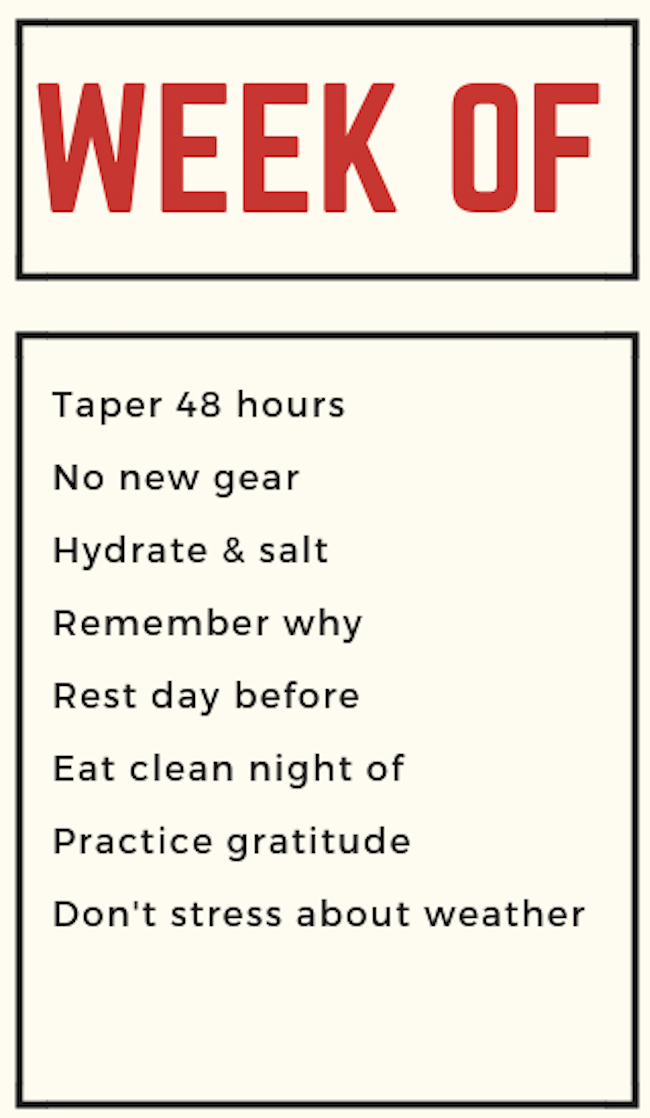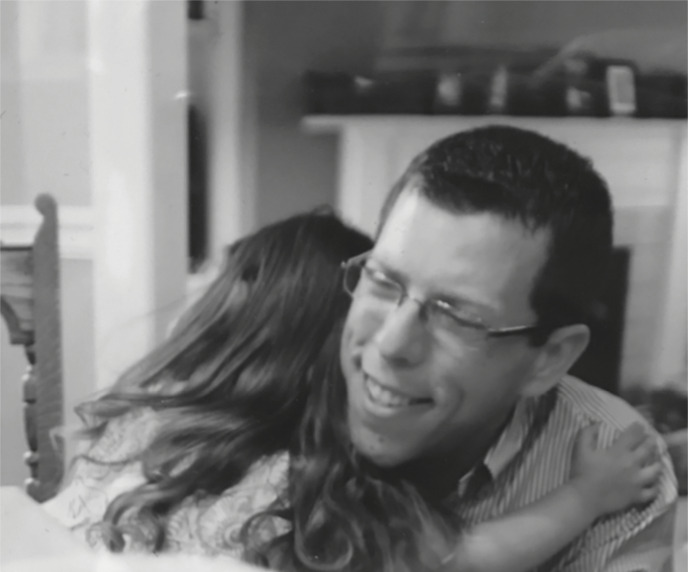
Questions we will answer:
- Do you know how much water to drink for a 10k race?
- Do you know how to tell if you need electrolytes, salts, or food to not bonk on your race?
- What should your food look like — up to and the day of?
The race is here and you have been training. You’ve put in the miles, have a number bib, and a favorite outfit put together for the day. This is the best moment, the work is done and now the event is here! I love these moments .. well, I love the training as much as the event, but cherish these races as they have a special place in my heart.
Personally, I have spent a lot of time testing, tinkering, making a lot of mistakes, following way to many FADs, and learning what works and doesn’t work and sharing here the absolute best details for your success.
That is what you need now — you are physically ready and emotionally. Now you need to fuel your body. That is what we’ll focus on

Day of Peachtree Road Race:
- 2+ hours from event — Eat a familiar breakfast. This breakfast should be a lot of carbs, some protein, and little fat.
- 30 minutes before event — Carbs, more. Banana, Fuel for Fire, ProCarb, or your favorite easy to digest carbohydrate. Roughly 20–40g of carbs
- During the race — Sip water, make sure you have some electrolytes in your bottle if you are doing this in the heat (and in ATL, you are doing it in the heat)

- During Peachtree — Be smart, if you are feeling good .. go straight through and have fun. If you start forgetting what rep you are on, feeling low on energy, have a dry mouth → drink some electrolytes and maybe some more carbs. Usually our body needs a refresher if it is very hot or some other stress exists in our body (try not to eat more than 250 calories during Murph)
- Post Peachtree — CONGRATS you did it! Now … to refuel and yes, more carbs and protein (no fat) immediately afterwards are on the plan, at least 25–40g of carbs
- Post Post Peachtree — 30 mins to 2 hours after Peachtree have a good meal. Mainly protein and carbs still, maybe some potatoes now vs the high fruit carbs we have been enjoying today.
- 4+ hours Peachtree — Back to normal and yes fat is on the menu. This is likely the last meal of the day, so be sure you are hitting your calorie needs for the day, and lets be sure we have fat back on the plate.
Day before Peachtree
- Meals should be low in ruffage, salt foods (not salty foods), eat clean
- Drink water and take a rest day — seriously, it’ll help a lot
- Clean foods = anything grilled or baked, preferably a fish or chicken.
- Carbs = potatoes or rice would be ideal
- Fat = avocado would be nice
- Foods to generally avoid the day before = pizza, anything fried, anything processed, fast food, leafy vegetables, spicy (get it 😉

Week of Peachtree
- Taper 48 hours — You’ve trained, so give your body time to be fully charged for the fun race.
- No new gear — Don’t add anything to your body or outfit on race day that you haven’t trained with .. just don’t, promise it’ll be fine.
- Practice gratitude — You GET to run this race, it is a privilege so frame your mind and you’ll overcome every cramp, challenge, and bump on race day
- Eat the meal / foods you plan to eat on day / night of Peachtree (try out the same breakfast and see how it settles)
- Don’t stress about weather — It’s Atlanta .. and it’ll be great no matter what!
After the race — celebrate, you made it!
Food, drinks, yes. We want carbs after the race and some protein. Plenty of salt too. A few hours after the event, feel free to add in some fats too. (Fats slow digestion and after a race, it’s better let those calories take the fast track to your body).
A few things we learned from training and race around nutrition:
We need to stay consistent with our fuel on race day, so experimenting during our training runs is ideal if we won’t have our favorite kitchen / grocery
- Tapering and resting before the event is mandatory
- Carbo loading is unnecessary before the night of race, so long as we have been eating our normal intake 48 hours up to race
- If you are feeling woozy and can’t “think” in the race — salt + electrolytes are our heroes.
- 10k races and shorter are fun — and so we should enjoy the course and people, but not so much of the food being tossed at us
- 10k+ races (anything over an hour) — definitely plan to eat 200–250 cals every hour
There is so much involved on big events but I try to cover the most impactful items surround fueling and preparation. These helped me in my 8+ Ironman events, 50k+ runs, solo volcano runs, and numerous long endurance events including Murph. The key factors to consider — fuel your body, know how your body responds to this food when stressed in the event, and test test test to solidify confidence in your plan prior to the day of the event!
If this was valuable, please comment and share

As usual, if you liked this article, please support me by clicking LIKE and share it with your own feed! This is the best possible way that you can support me and my pursuit to share my insights, ideas, and research. If anyone has anything to add or comment on in this article, please feel free to share it with everyone below in the comments section! Learn more about me at my homepage at www.jamesdeluccia.com, LinkedIn, follow me on Twitter @jdeluccia, and soon listen on my podcast and Alexa skill briefings in the coming weeks!
About Me

I am a father, study of human behavior, strategist, cybersecurity executive, and a coach and mentor on a journey to give more than I receive everyday. I lead teams globally, build products, and daily an executive for a leading company where I serve the largest companies in the world using the largest cloud deployments in the world impacting the financial services, healthcare, and fintech industries. I provide these publications and content through my media agency to deliver insights and advantages. Mindset, mental strength, mentorship, personal improvement, health, fitness, and humanist ideas are drawn from personal research and practice. Everything read and heard is my original works and my own perspective. All rights reserved for noted authors and sources. I produce research and strategy, as well as provide advisory services that include inquiries, briefings, consulting projects, and presentations on published findings as well as bespoke speaking engagements where I often keynote at conferences, seminars, and roundtables annually.